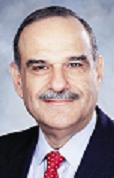If I Were President, Part 1 …

Vote for me, based on the following plank in my platform:
Energy Policy
Like it or not, despite all the projections of how much alternative energy we will be using over various time periods, our need for oil will be here for decades. There are those who say that today’s projects will not produce a drop of oil for 7-10 years. Well, if we had undertaken these projects 7-10 years ago we would be selling oil to the Middle East by now. If not, 7-10 years from now we will be having the same argument.
I consider myself an environmentalist, though some might disagree. Sure, this proposal might retard development of renewable energy, but we can level that out with tax subsidies to the alternative fuel developers while phasing out subsidies to the oil industry.
This approach might extend our dependence on oil, but at least it won’t be foreign oil. Still, attempts to make alternative energy economically feasible will go on, and when they succeed, the marketplace will show its preference for the “greener” source of energy.
Costs and risks involved, and problems of handling resulting waste will prevent any new nuclear power plants being built. Conservation will reduce some of our dependence on oil, but as an old mentor of mine said he’ll believe in the seriousness of the movement when the parking lot of a Sierra Club meeting is full of only bicycles.
This all may sound cynical, but it is realistic. Starting the process of producing more oil is sound from a national security standpoint, and from an economic standpoint.
I am from Louisiana so I have seen oil rigs from the shore of the Gulf of Mexico. Newer techniques vastly reduce the unattractiveness of these rigs. Some of these techniques also remove the requirement that a rig be directly over the source of the oil.
So let’s produce a balanced approach to producing the oil where it is most plentiful. Even ANWR should be on the table.
Wait! I have one more major plank. Oh well, maybe next time.







